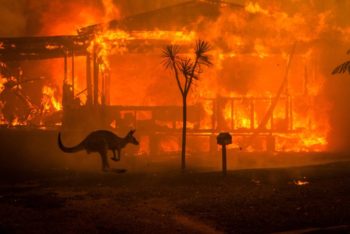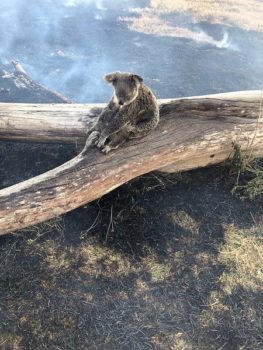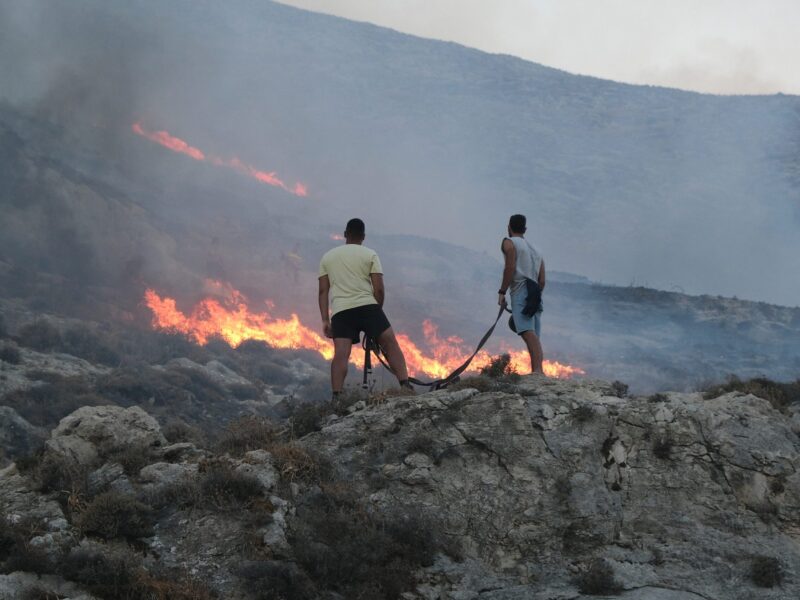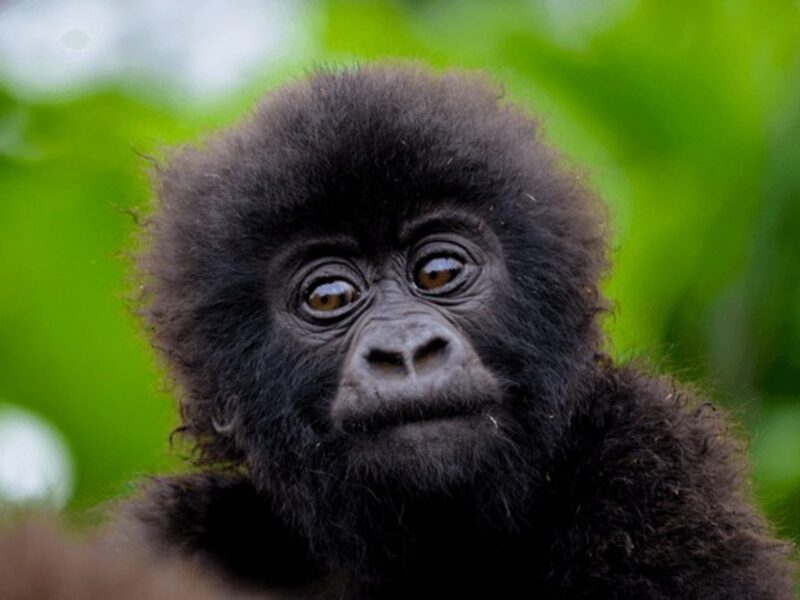
Australia’s Bush Fires: What They Mean for the Future of the Planet

Image Credit: @mattabbottphoto
Who could fail to be moved by the human and ecological catastrophe unfolding in the wake of the Australian bush fires? We share heartfelt sorrow for the families of the 23 people or more who have lost their lives since September. More than 1,200 homes too have been destroyed. Millions of hectares of habitat have been burned in what NSW Transport Minister, Andrew Constance, has compared to the devastation of an atomic bomb.

Koala shields her baby midst smoldering bush land. This koala and joey are two of the lucky ones, they were rescued from a bushfire in the Gold Coast hinterland and are now recovering in a wildlife hospital. Image Credit: Jimboomba Police
In New South Wales (NSW) alone, an estimated 480 million animals have been affected by the fires. Many are killed, engulfed by the blaze. Heart-rending pictures of koalas caught up in the flames attest to the devastation that has killed an estimated 25,000 of them. Others like birds or fast-moving mammals can flee the raging fires to an uncertain future. After all, the habitat that sustains them will have gone up in smoke behind them, literally.
The raging fires of Australia are a dramatic example of how weather extremes are already having a massive impact on the planet, a phenomenon set to intensify as the climate heats up. It underscores the need for global action to tackle climate change and its key drivers, one of which is runaway consumption of meat and dairy.
Australia’s current tragedy comes hard on the heels of fires last summer sweeping through the Amazon, fueled in part by the voracious appetite globally for cheap meat. Soya production to feed factory farmed animals is expanding across long-established cattle pastures, pushing herds further into the forest where trees are burned to open up new farmland.
I’m also reminded of what I saw in Sumatra, where fires burned through the forest homes of orangutans, tigers and elephants to make way for more palm plantations, for the processed food industry and to feed factory farms. Palm kernel is a common ingredient in intensive cattle feed, particularly for beef and dairy in Europe. For the fortnight I was there, burning trees caused a thick smog. It became so bad that authorities grounded planes and called a state of emergency.
Factory farming is not only the biggest cause of animal cruelty on the planet, it is also a major reason for the collapse of the natural world.

Raptors circle for small creatures running from the flames. Image Credit: Dick Eussen
Australia’s bushfires clearly demonstrate that, as the climate heats up and nature breaks down, the feedback loops bring misery to both animals and people.
As we enter a new decade, we arrive in last chance saloon for solving climate change. Scientists tell us that we have little more than 10 years to stop global heating reaching catastrophic levels. It’s all hands to the pumps.
Let’s make the decade, where we compel governments, companies and societal leaders to get serious about tackling climate change. This has to include profound action to address key drivers of global heating, not least factory farming and overconsumption of meat and dairy. Animal production contributes more greenhouse gases than emissions from all the world’s trains, planes and cars put together. Without tackling diets rich in ‘cheap’ meat, climate change will continue to spiral out of control.

Two sheep charred but still alive midst the bushfires in NSW. Image Credit: ABC News | Matt Roberts
Here at Compassion, we enter the new decade redoubling our efforts to end factory farming. We will be louder and bolder about the need to end animal cruelty and the overconsumption of its products. Thank you for being with us this far. And stay tuned for regular updates on how you can become even more involved in what is so clearly a battle for the planet.
If you would like to make a donation to help those animals caught up in the devastating bushfires, we would like to suggest you make a donation to Animals Australia – a well established animal charity from Australia with whom we actively work to stop live exports. Please use this link to learn more, thank you. https://secure.





